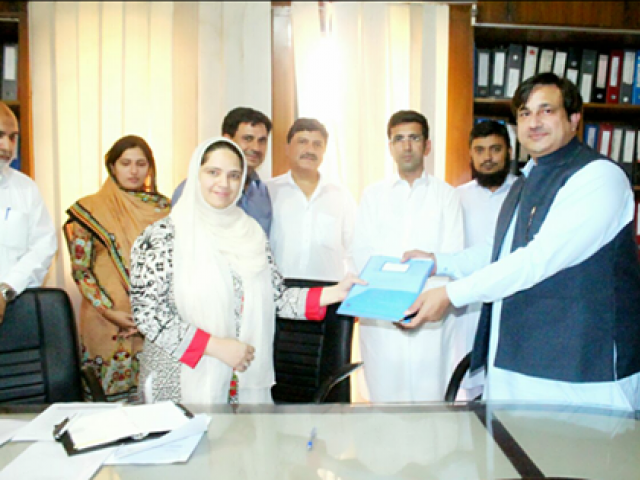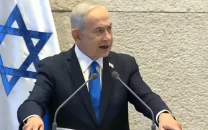Five-year report : Government more than doubled health budget
Launched host of initiatives including Sehat Insaf insurance scheme, telemedicine and food authority

Health Secretariat. PHOTO: FILE.
Besides the hefty increase in budget, the Khyber-Pakhtunkhwa (K-P) government introduced the Health Care Commission Act, the MTI Reforms, Medical Aid Act, Health Foundation Act, Safe Blood Transfusion Act, Protection of Breastfeeding and Child Nutrition Act, apart from launching initiatives such as the welfare scheme of Sehat Insaf and created a food safety authority in the province to regulate the quality are among a few legislations enacted by the incumbent government.
Major allocations: K-P only province to allocate 20% for education
Soon after it formed its government, the Pakistan Tehreek-e-Insaf (PTI)-led K-P government took a series of steps to improve health services delivery in the province.
According to a five-year performance report released by the government, the budgetary allocation for the sector has been increased by 200% from 2013-2018 to Rs30.2 billion, up from just Rs9.9 billion during the tenure of the previous government from 2008-13.
Moreover, the government dedicated Rs5.3 billion for its health insurance scheme, the Sehat Insaaf project, under which it claimed to have provided around 70% of the provincial population with health insurance.
The scheme allows members to avail health services in designated private hospitals and 106 public hospitals across the province. Per figures released by the health department, Rs2.6billion have thus far been spent on providing healthcare to patients under the scheme.
Additionally, the health department has also successfully completed 15 ongoing projects left over from the previous government which helped add 2,085 beds to government hospitals. An additional 15 projects are in the process of completion phase which will ensure the availability of 2,626 additional beds in public hospitals.
Similarly, the report says that the government has allocated Rs1.9 billion for the free treatment of cancer patients. The scope of treatment covered under the project has also been extended to cover all cancer patients whereas previously, this facility could only be availed by 800 patients having suffered from a specific type of cancer.
Currently, as many as 3,500 cancer patients can avail treatment under the programme.
The provincial government has also allocated Rs925 million for the provision of insulin and medicine necessary for diabetic patients and those having kidney diseases. So far, 87,668 patients have been assisted under the initiative.
Moreover, the provincial government has also taken measures to ensure the provision of free medicine to patients.
Food authority to ensure provision of ‘safe food’ for students
Under the scheme, Rs1 billion was allocated over the past three years to the emergency department of every District Headquarters hospital (DHQs) and Medical Teaching Institutes (MTIs).
To ensure the provision of health services in rural villages, the report said that the government had revived basic health facilities in villages and have made them fully functional. Out of 111 basic health units in the province, 62 were currently working around the clock in different shifts.
To ensure patients have access to experts and professional doctors, a telemedicine initiative has been launched in five districts costing a total of Rs95 million. This initiative is currently helping patients in villages to gain access to a board of professional doctors by connecting them through information technology.
The government further claimed to have completed construction on the province’s first-ever burns centre at a cost of Rs2.2 billion with 120 beds. The supply order to purchase the necessary equipment for the centre has been issued and 347 posts of doctors and necessary staff have also been created.
The government has also introduced independent monitoring mechanisms of the hospitals in order to evaluate the performance of doctors. So far, Rs3.5 billion in fines have been levied on doctors and paramedical staff throughout the province for absenteeism.
Published in The Express Tribune, May 24th, 2018.













COMMENTS
Comments are moderated and generally will be posted if they are on-topic and not abusive.
For more information, please see our Comments FAQ